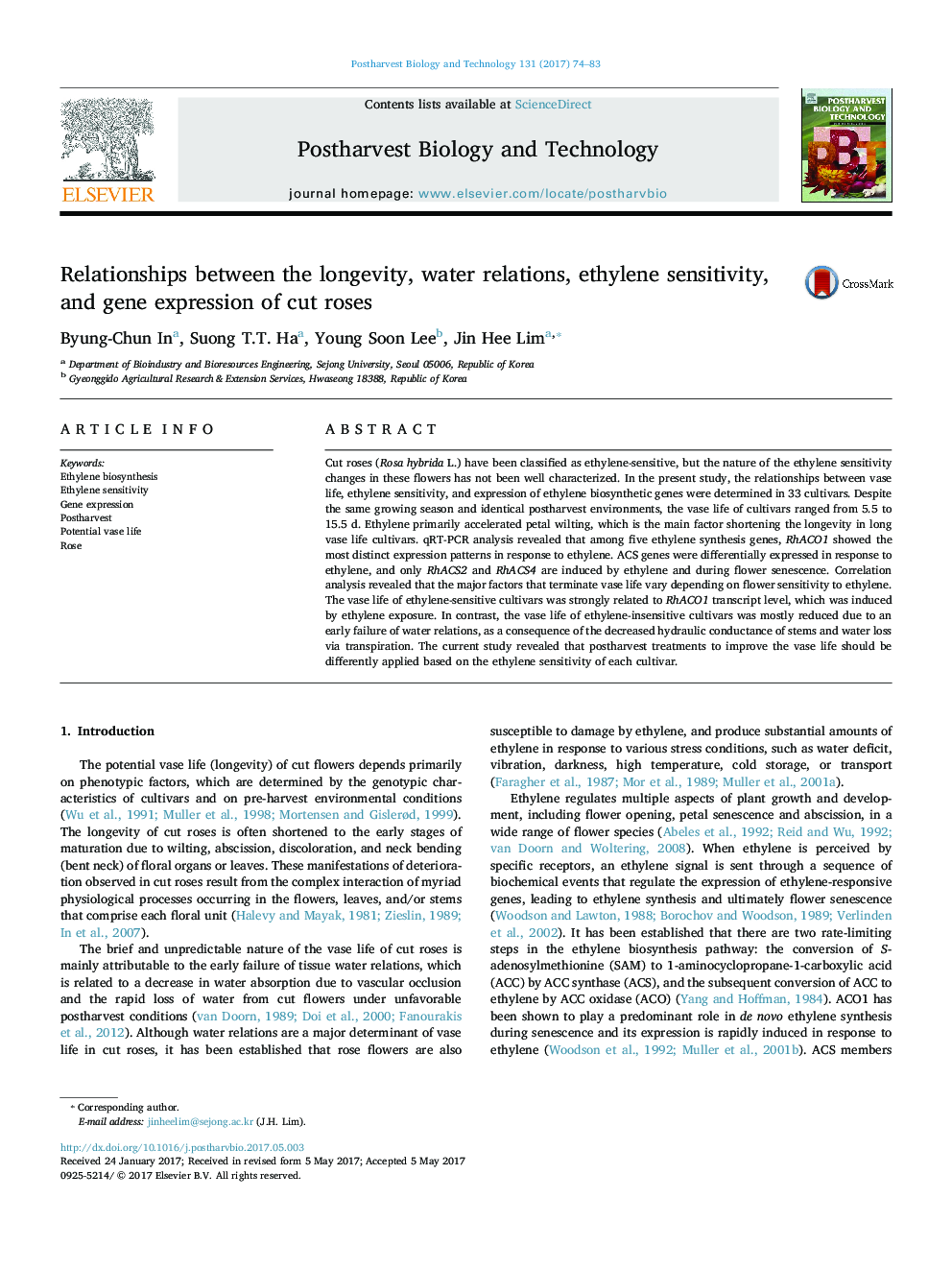| Article ID | Journal | Published Year | Pages | File Type |
|---|---|---|---|---|
| 5762700 | Postharvest Biology and Technology | 2017 | 10 Pages |
Abstract
Cut roses (Rosa hybrida L.) have been classified as ethylene-sensitive, but the nature of the ethylene sensitivity changes in these flowers has not been well characterized. In the present study, the relationships between vase life, ethylene sensitivity, and expression of ethylene biosynthetic genes were determined in 33 cultivars. Despite the same growing season and identical postharvest environments, the vase life of cultivars ranged from 5.5 to 15.5 d. Ethylene primarily accelerated petal wilting, which is the main factor shortening the longevity in long vase life cultivars. qRT-PCR analysis revealed that among five ethylene synthesis genes, RhACO1 showed the most distinct expression patterns in response to ethylene. ACS genes were differentially expressed in response to ethylene, and only RhACS2 and RhACS4 are induced by ethylene and during flower senescence. Correlation analysis revealed that the major factors that terminate vase life vary depending on flower sensitivity to ethylene. The vase life of ethylene-sensitive cultivars was strongly related to RhACO1 transcript level, which was induced by ethylene exposure. In contrast, the vase life of ethylene-insensitive cultivars was mostly reduced due to an early failure of water relations, as a consequence of the decreased hydraulic conductance of stems and water loss via transpiration. The current study revealed that postharvest treatments to improve the vase life should be differently applied based on the ethylene sensitivity of each cultivar.
Related Topics
Life Sciences
Agricultural and Biological Sciences
Agronomy and Crop Science
Authors
Byung-Chun In, Suong T.T. Ha, Young Soon Lee, Jin Hee Lim,
